Nabicarb-DS 1000 mg Tablet 10's
MRP ₹59
(Inclusive of all Taxes)
₹8.8 Cashback (15%)
Provide Delivery Location
Online payment accepted
 Prescription drug
Prescription drugWhats That
Composition :
Manufacturer/Marketer :
Consume Type :
Expires on or after :
Return Policy :
About Nabicarb-DS 1000 mg Tablet
Nabicarb-DS 1000 mg Tablet belongs to a group of medicines called alkalinising agents used to correct the acid-alkaline balance in the body. Nabicarb-DS 1000 mg Tablet is used to treat acid indigestion, heartburn, sour stomach, and stomach upset. Nabicarb-DS 1000 mg Tablet may also be prescribed to make the blood or urine less acidic in certain conditions.
Nabicarb-DS 1000 mg Tablet contains ‘Sodium bicarbonate’, which helps in neutralising the acidic pH in the stomach. Thereby, Nabicarb-DS 1000 mg Tablet helps to provide relief from acidity.
You are advised to take Nabicarb-DS 1000 mg Tablet for as long as your doctor has prescribed it for you, depending on your medical condition. In some cases, you may experience common side-effects such as dry mouth, urinating more than usual, and increased thirst. Most of these side effects do not require medical attention and will resolve gradually over time. However, you are advised to talk to your doctor if the side effects persist or worsen.
Inform your doctor if you have high blood pressure, kidney, liver or heart disease, if you have recently had bleeding in the stomach or intestine or if you are on a low-salt diet. Consult your doctor if you are pregnant, planning for pregnancy or breastfeeding. Nabicarb-DS 1000 mg Tablet should not be given to children unless prescribed by the doctor. Avoid consuming alcohol as it could elevate the production of stomach acid.
Uses of Nabicarb-DS 1000 mg Tablet
Directions for Use
Key Benefits
Nabicarb-DS 1000 mg Tablet belongs to a group of medicines called alkalinising agents used to correct the acid-alkaline balance in the body. Nabicarb-DS 1000 mg Tablet is used to treat acid indigestion, heartburn, sour stomach, and stomach upset. Nabicarb-DS 1000 mg Tablet can also be prescribed to make the blood or urine less acidic in certain conditions. Nabicarb-DS 1000 mg Tablet helps in neutralising the acidic pH in the stomach. Thereby, Nabicarb-DS 1000 mg Tablet helps to provide relief from acidity.
Storage
Drug Warnings
Do not take Nabicarb-DS 1000 mg Tablet if you are allergic to any of its components. Inform your doctor if you have blood abnormalities, kidney stones, high blood pressure, kidney failure, heart failure, fluid retention, or if your breathing is slower than usual. Consult your doctor if you are pregnant, planning for pregnancy or breastfeeding. Nabicarb-DS 1000 mg Tablet should not be given to children unless prescribed by the doctor.
Drug-Drug Interactions
Drug-Drug Interactions
Login/Sign Up
Taking Nabicarb-DS 1000 mg Tablet with Gefitinib together can reduce the levels and treatment outcomes of Gefitinib.
How to manage the interaction:
Although taking Gefitinib and Nabicarb-DS 1000 mg Tablet together can cause an interaction, it can be taken if a doctor has suggested it. Contact your doctor if your symptoms do not improve. Do not stop using any medications without talking to a doctor.
Co-administration of Nabicarb-DS 1000 mg Tablet and Dolutegravir reduces the levels of Dolutegravir, resulting in reduced effectiveness.
How to manage the interaction:
Although taking Dolutegravir and Nabicarb-DS 1000 mg Tablet together can result in an interaction, they can be taken together if prescribed by your doctor. However, if you experience symptoms like fever, chills, diarrhea, sore throat, muscle aches, red or inflamed skin, and pain or burning during urination, contact your doctor immediately. Do not discontinue any medications without consulting your doctor.
Drug-Food Interactions
Drug-Food Interactions
Login/Sign Up
Diet & Lifestyle Advise
- Eat smaller meals more often.
- Avoid smoking and alcohol consumption. Alcohol intake leads to increased production of stomach acid, thereby increasing acidity and heartburn.
- Maintain a healthy weight by regular exercising.
- Avoid lying down after eating as it causes acid reflux.
- Avoid tight-fitting clothes as it might increase the pressure on the abdomen leading to acid reflux.
- Practise relaxation techniques and avoid stress by doing yoga or meditation.
- Avoid foods such as high-fat food, spicy food, chocolates, citrus fruits, pineapple, tomato, onion, garlic, tea and soda.
- Avoid sitting continuously as it may trigger acidity. Take a break of 5 minutes every hour by doing brisk walking or stretching.
Side Effects of Nabicarb-DS 1000 mg Tablet
- Dry mouth
- Urination more than usual
- Increased thirst
Habit Forming
Therapeutic Class
All Substitutes & Brand Comparisons
RX
Sodic-DS 1000 mg Tablet 10's
Mediart Life Sciences Pvt Ltd
₹50.5
(₹4.55 per unit)
14% CHEAPERRX
Auxisoda-DS Tablet 10's
Alniche Life Sciences Pvt Ltd
₹53.5
(₹4.82 per unit)
9% CHEAPERRX
Acidose-DS 1000 Tablet 15's
Renauxe Pharma India Pvt Ltd
₹85
(₹5.11 per unit)
3% CHEAPER
Author Details
We provide you with authentic, trustworthy and relevant information
Drug-Diseases Interactions
Drug-Diseases Interactions
Login/Sign Up
FAQs
Drug-Drug Interactions Checker List
- DOXYCYCLINE
- ASPIRIN
- MECAMYLAMINE
- MEMANTINE
- CHLORPROPAMIDE
- LITHIUM
- FUROSEMIDE
- BUMETANIDE
- ETHACRYNIC ACID
- PSEUDOEPHEDRINE
- EPHEDRINE
- AMPHETAMINE
- QUINIDINE
- FLECAINIDE
Special Advise
- Check with your doctor before taking Nabicarb-DS 1000 mg Tablet if you are on a sodium-restricted diet.
- Regular monitoring of blood acid levels during the course of treatment with Nabicarb-DS 1000 mg Tablet is advised.
Disease/Condition Glossary
Acidity: The stomach is usually protected from acid by a mucous layer. In some cases, due to excess acid production, the mucous layer gets eroded, which leads to complications like acidity, heartburn, duodenal ulcers, gastroesophageal reflux disease (GERD) and erosive esophagitis. Acidity occurs when stomach acid frequently flows back into the food pipe (oesophagus). This backflow (acid reflux) irritates the food pipe and causes heartburn. Symptoms include heartburn, sour or bitter taste in the mouth, and difficulty swallowing.

Have a query?
Alcohol
Safe if prescribed
Avoid consumption of alcohol while taking Nabicarb-DS 1000 mg Tablet . Alcohol intake leads to increased production of stomach acid, thereby increasing acidity and heartburn.
Pregnancy
Consult your doctor
Nabicarb-DS 1000 mg Tablet belongs to pregnancy category C. Consult your doctor if you are pregnant; your doctor will prescribe only if the benefits outweigh the risks.
Breast Feeding
Consult your doctor
Consult your doctor if you are breastfeeding; your doctor will decide whether Nabicarb-DS 1000 mg Tablet can be taken by breastfeeding mothers or not.
Driving
Safe if prescribed
Nabicarb-DS 1000 mg Tablet is unlikely to affect your ability to drive and handling of machinery.
Liver
Consult your doctor
Dose adjustment may be needed. Consult your doctor if you have a liver impairment or any concerns regarding this.
Kidney
Consult your doctor
Dose adjustment may be needed. Consult your doctor if you have kidney impairment or any concerns regarding this.
Children
Safe if prescribed
Nabicarb-DS 1000 mg Tablet should not be given to children unless prescribed by the doctor.





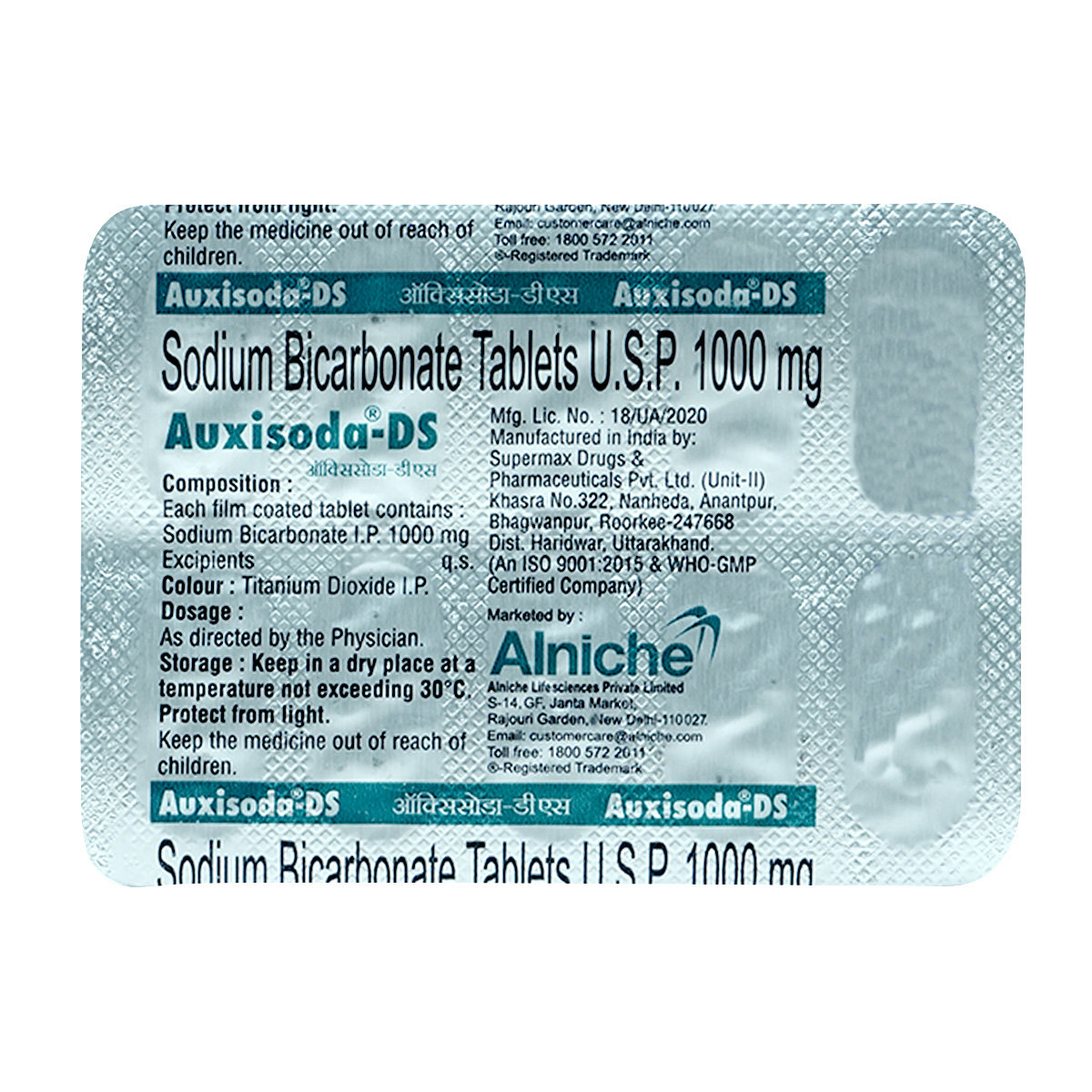
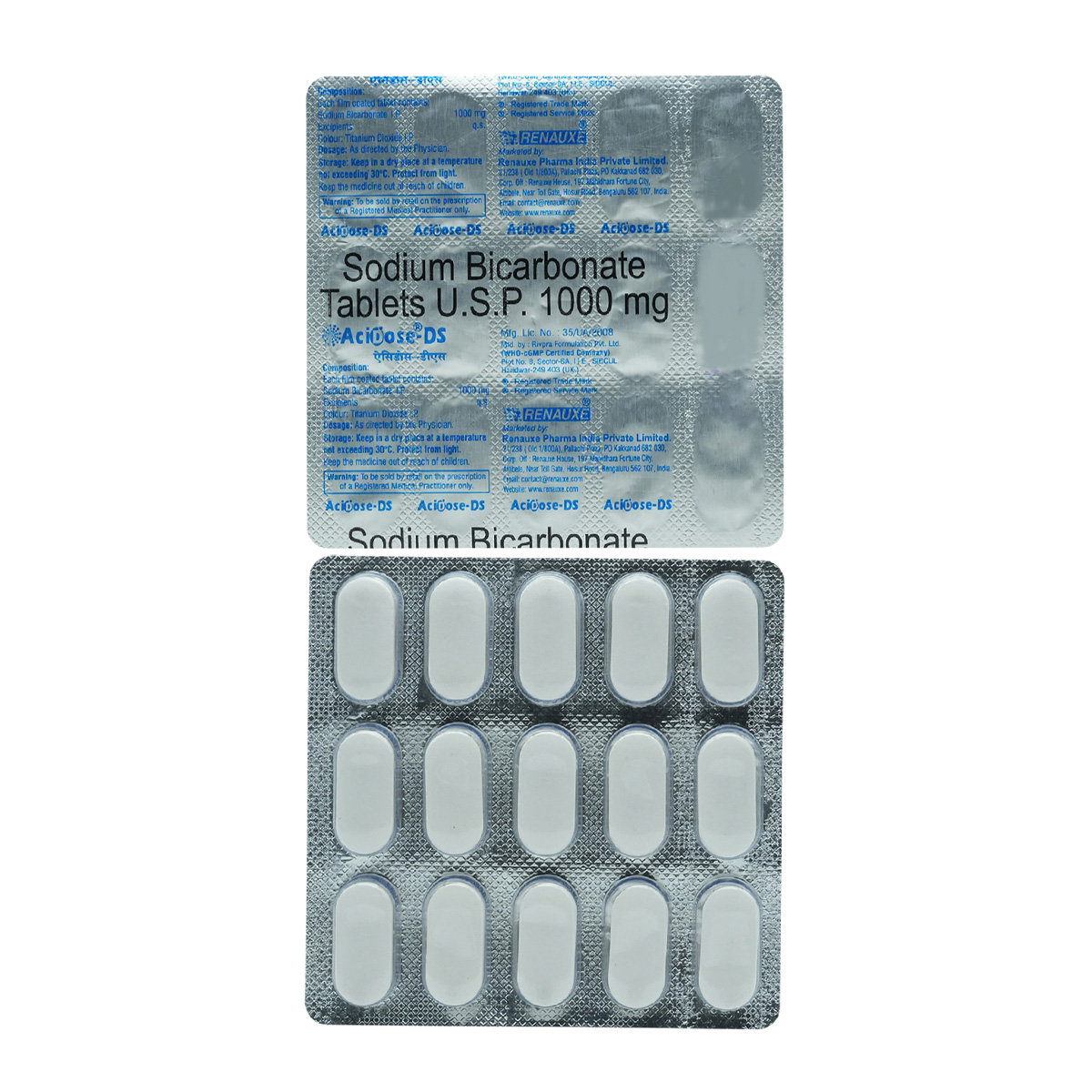
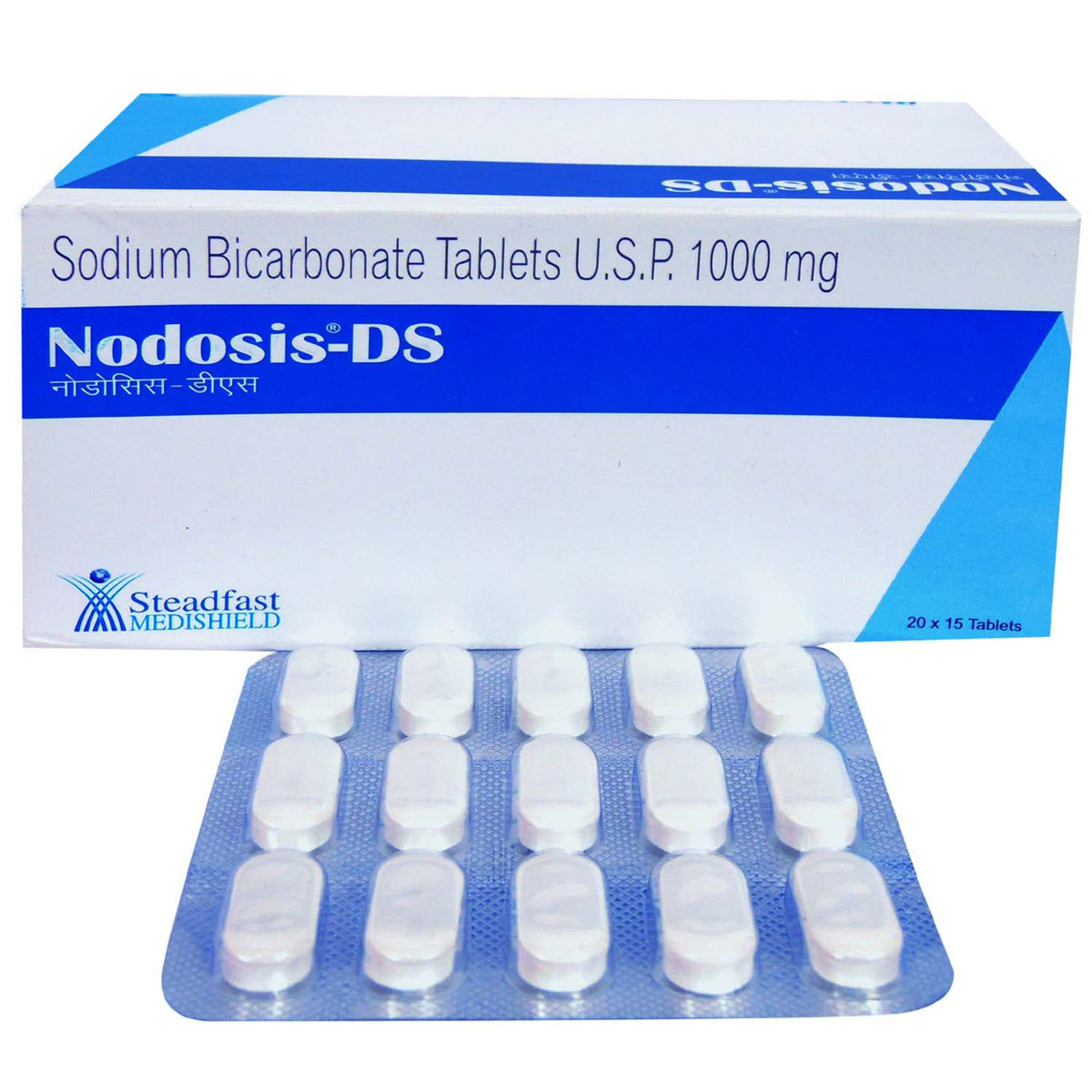

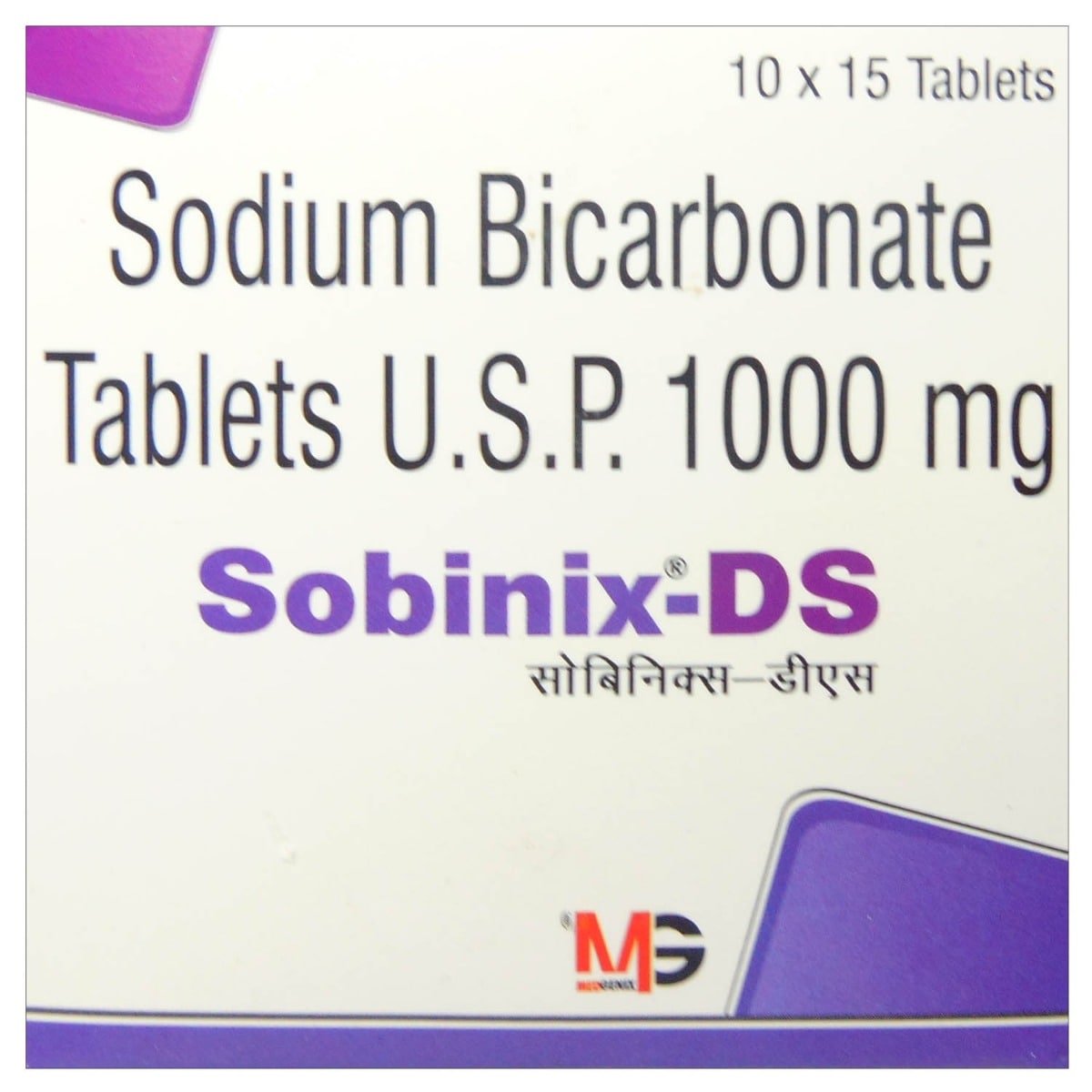
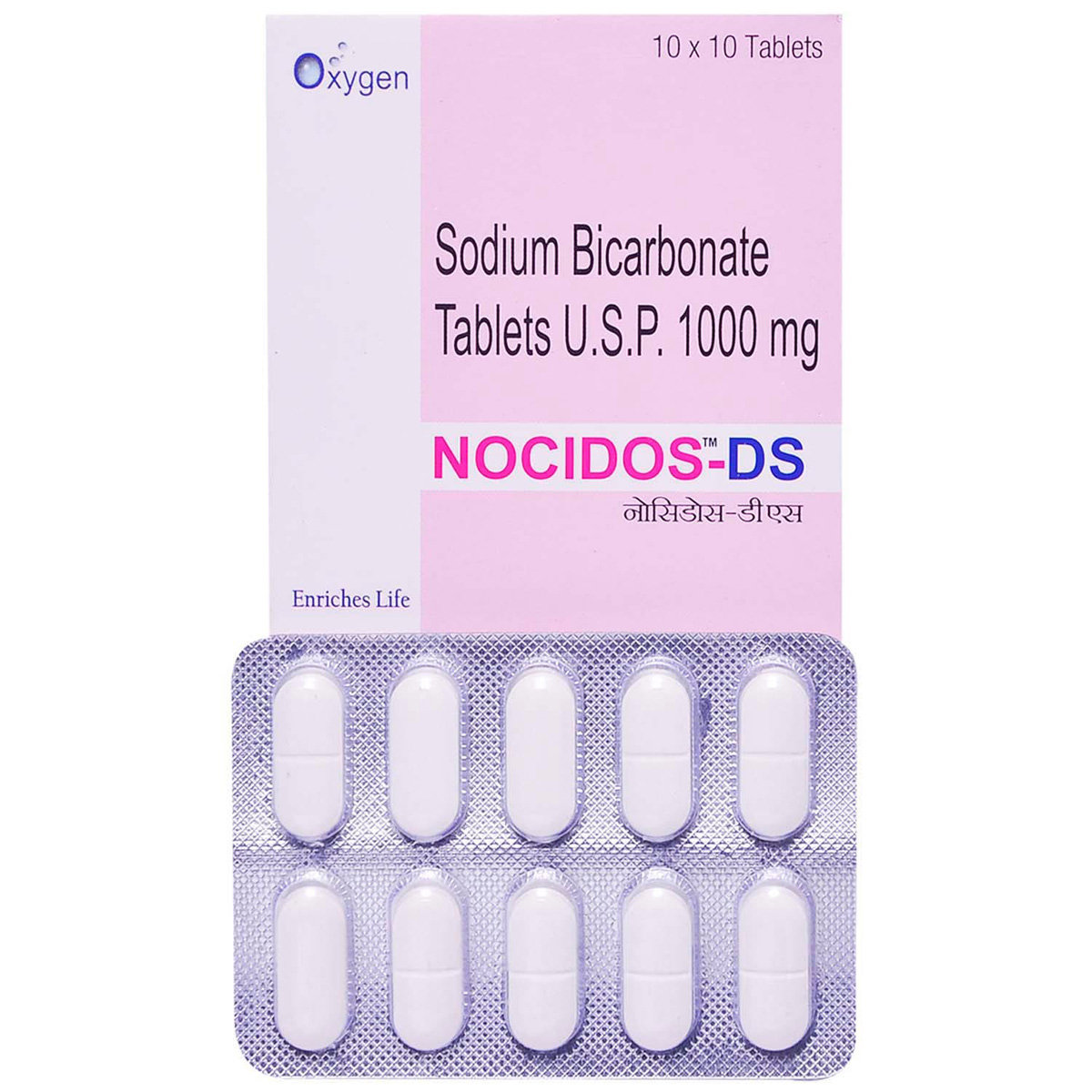
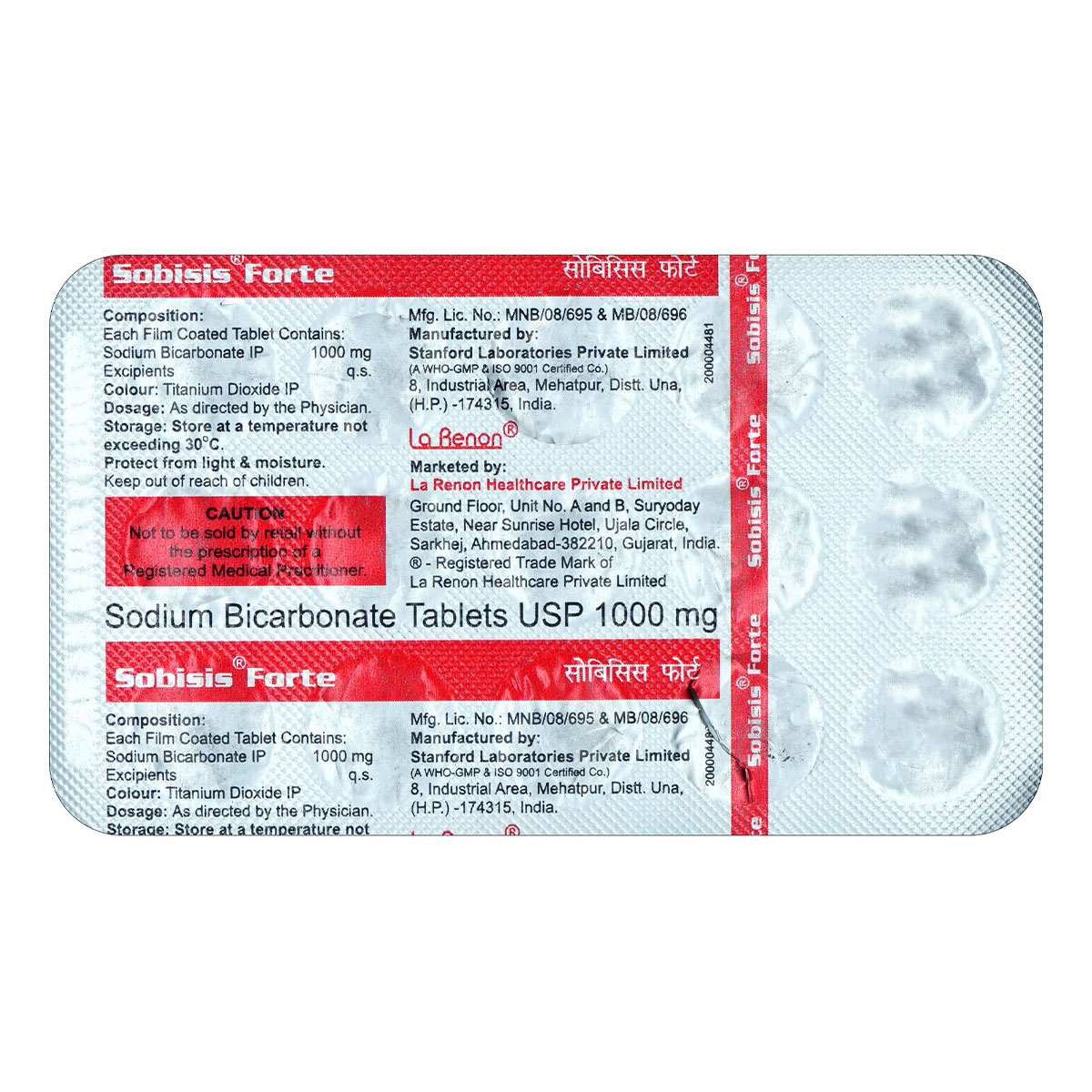

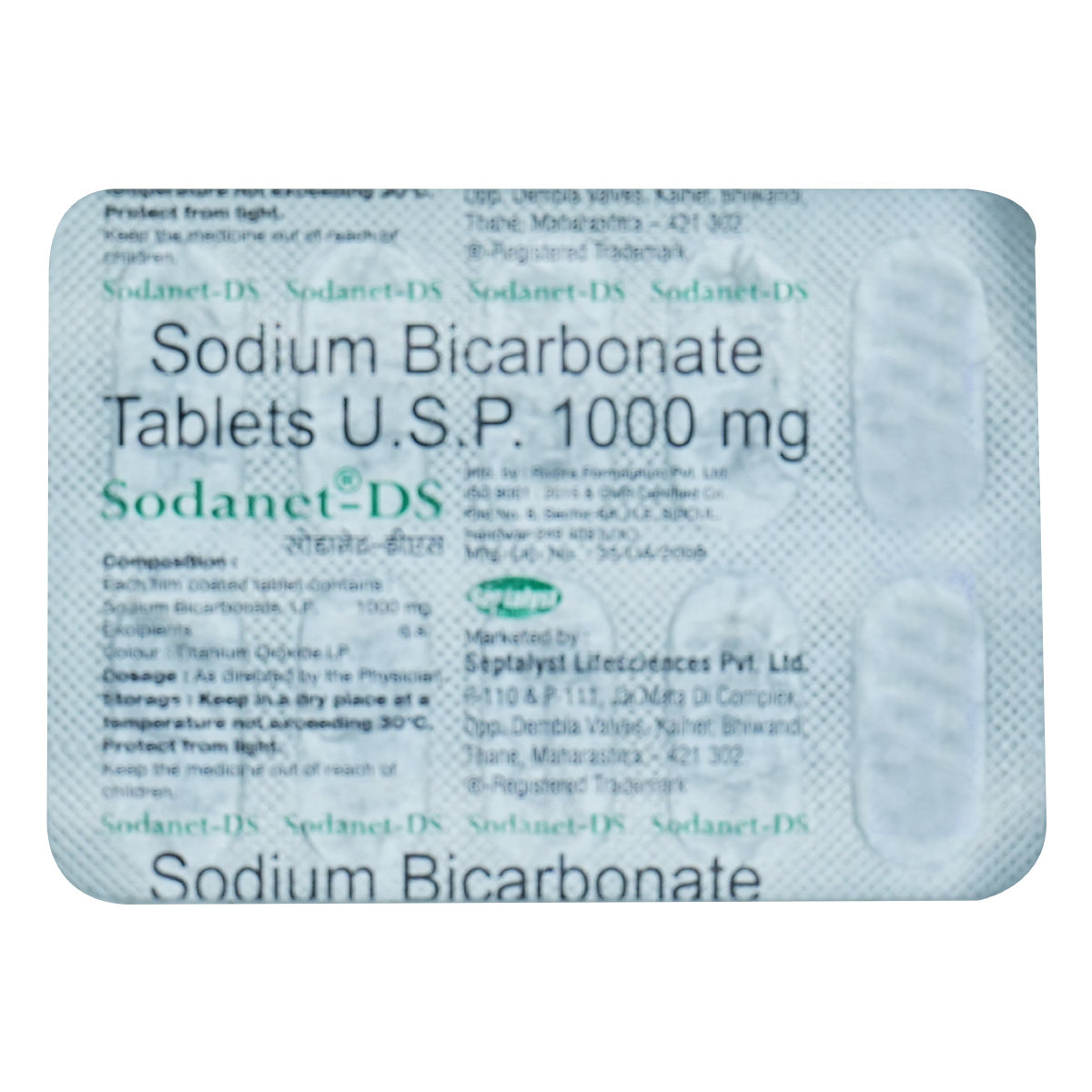
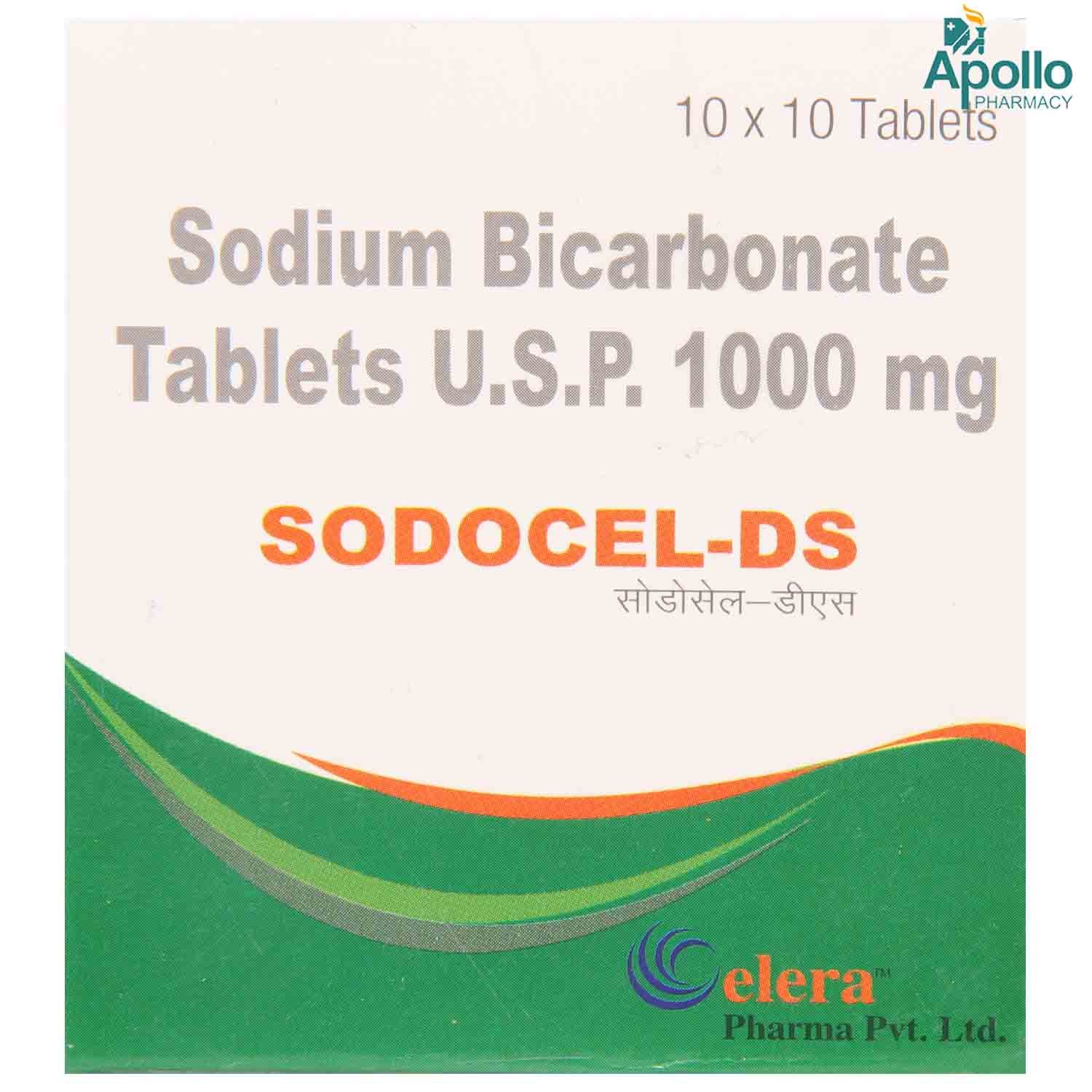
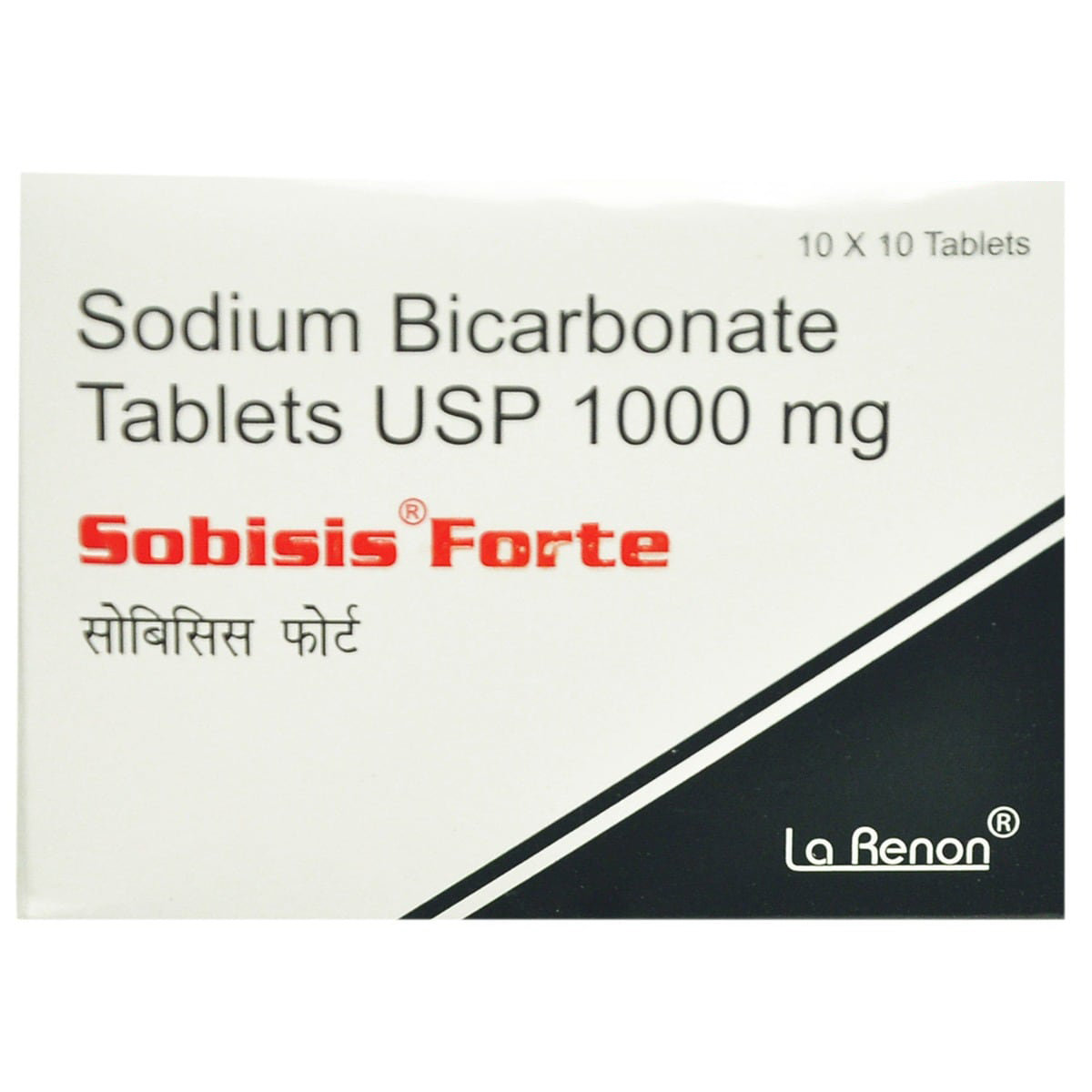

_0.jpg?tr=q-85)

